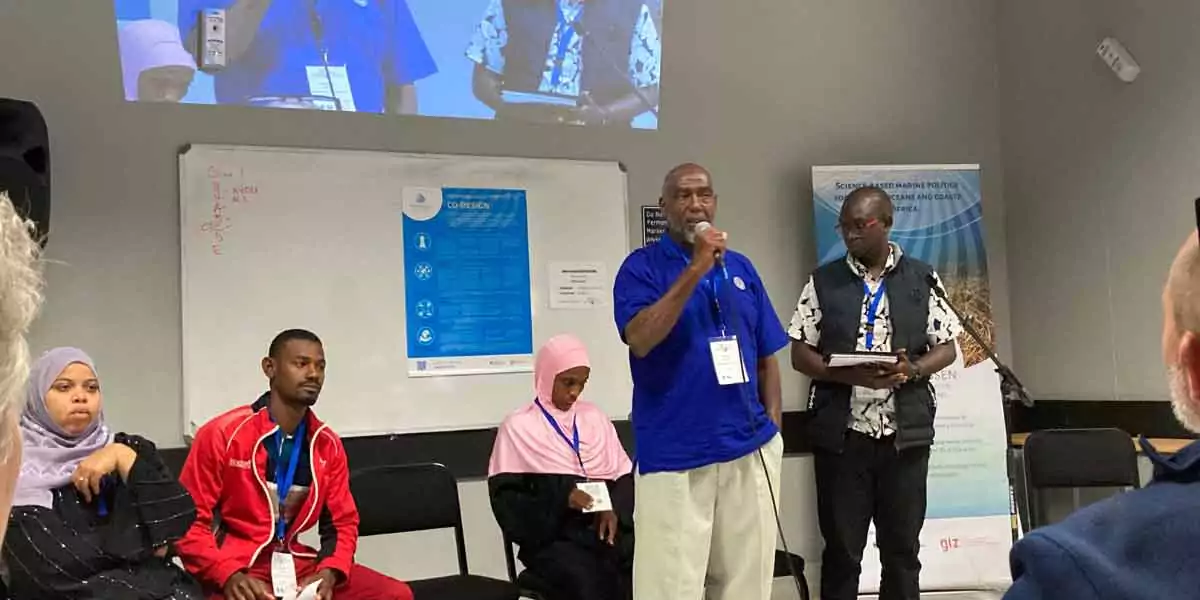How is marine science transformed through Co-Design? This was the central question participants from all disciplines of marine science and beyond addressed in our Special Session at the 12th WIOMSA Scientific Symposium on 14 October 2022, which MeerWissen co-organized with IOC UNESCO and WIOMSA.
With over 800 attendees, the symposium was one of the largest gatherings in marine science in the Western Indian Ocean region. Under the motto “A New Decade of Western Indian Ocean Science”, the conference presented the most recent advances made in ocean and climate science to address the challenges facing the Western Indian Ocean and to deliver on the sustainable development goals.
At our Special Session, co-design in marine science was front and center. More than 30 participants discussed how to transfer knowledge into practice. In recent years, the Co-design approach has been widely accepted as a key element for transdisciplinary and transformative research. Effective science-policy transfer and knowledge-based decision-making benefit from solution-oriented research objectives, tailor-made approaches, and the shared ownership of research findings by a range of stakeholders, including scientists, decision makers and local communities.
In the first part of the session, WIOMSA, the Ocean Decade (IOC -UNESCO) and the MeerWissen Initiative shared guidance, practice tools, and trainings on how to integrate Co-design in marine research. Julius Francis from WIOMSA informed participants how co-design has shaped the inception of WIOMSA. and Alison Clausen from IOC-UNESCO explained the co-design elements shaping the UN Ocean Decade. Alexandra Gerritsen from the MeerWissen Secretariat gave a walkthrough of the MeerWissen Co-Design guide, a practical guidance on how to plan and conduct Co-Design in collaborative marine science projects .
Afterwards, practitioners shared their insights from using the co-design approach in their work. Kenyan fishing communities, who collaborated with researchers in choosing areas to establish fisheries and sustainably manage these, informed the participants how their collaboration with marine scientists is benefitting both people and the environment. Researcher Katta Ludynia, who is involved in the MeerWissen Penguins project, illuminated how working together with research institutions, NGO’s and government helped the project bring all sides together and balance out individual shortcomings and blind spots.
Following these inspiring inputs, participants of the session had the chance to practice Co-design. We asked them: What do you need for successful co-design as a research project? Answers were varied and insightful. Most scientists shared the wish to get better insights into the political agenda of policy makers to set up research projects relevant to policy makers. They also asked for more openness and flexibility from funders to be able to work in an iterative process and allow space for co-production with different stakeholder groups. An open dialogue and careful listening from both sights were established as crucial.

